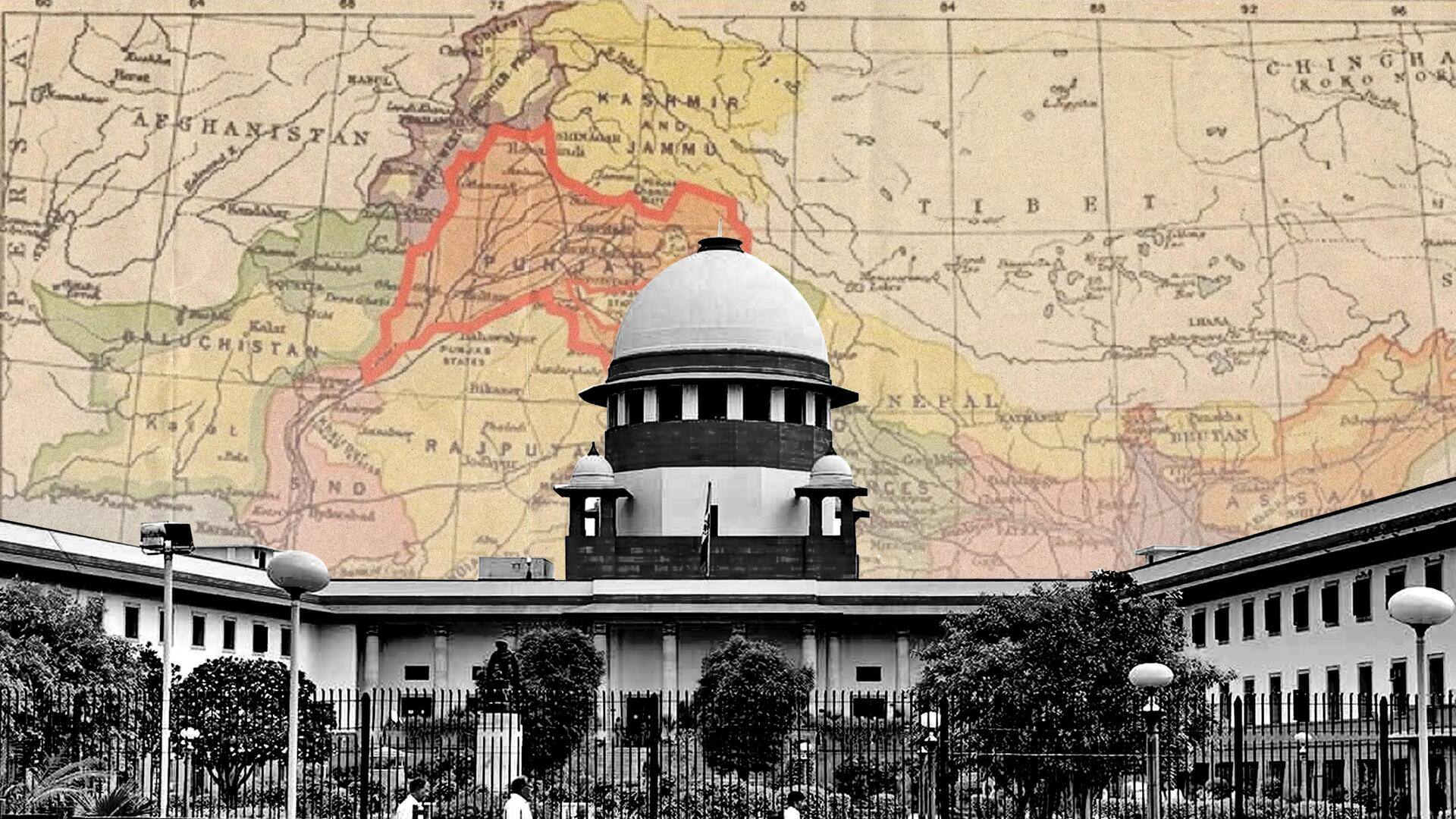
What about Punjab, Northeast: SC questions Centre's J&K bifurcation rationale
What's the story
The Centre on Wednesday defended abrogating Article 370, arguing that the bifurcation of the erstwhile state of Jammu and Kashmir was "one of a kind" considering its strategic importance, adding that such a situation wouldn't arise again, LiveLaw reported. However, the Supreme Court stated that the Jammu and Kashmir situation wasn't unique and questioned the Centre's rationale behind the reorganization. It cited the situation in Punjab and the Northeastern states, which also share international borders and have witnessed insurgencies.
Context
Why does this story matter?
The SC is hearing a bunch of pleas challenging the abrogation of Article 370, which stripped the erstwhile state of its special status, and the Jammu and Kashmir Reorganisation Act, 2019, which split the erstwhile state into the union territories of J&K and Ladakh. Article 370 abrogation effectively denuded J&K of autonomy by disbanding the legislative assembly and bringing it under the direct governance of New Delhi. On Tuesday, the SC questioned the Centre's roadmap for restoring J&K's statehood.
Argument
J&K unique because of history of terrorism: SG
Appearing for the Centre, Solicitor General Tushar Mehta said, "If Gujarat or MP were to be bifurcated, the parameters would be different," stressing that J&K is a border state with a history of terrorism and infiltration. Justice SK Kaul objected to this argument, saying, "We have seen the northern border Punjab... some states in Northeast... I understood your argument that these border states are their own category. But how do you distinguish between J&K with any other border states?"
Insights
Could Parliament have settled issue?
Chief Justice DY Chandrachud also raised concerns about the potential misuse of the power to bifurcate a state once it's conceded to the Centre. This point led to a discussion on why the question of bifurcation could not have been settled by Parliament. Notably, Article 370(3) empowered the president to junk Article 370 on the recommendation of J&K's Constituent Assembly, disbanded in 1957. The Centre amended Article 367, related to interpretation clauses, to bypass the hurdle and repealed Article 370.